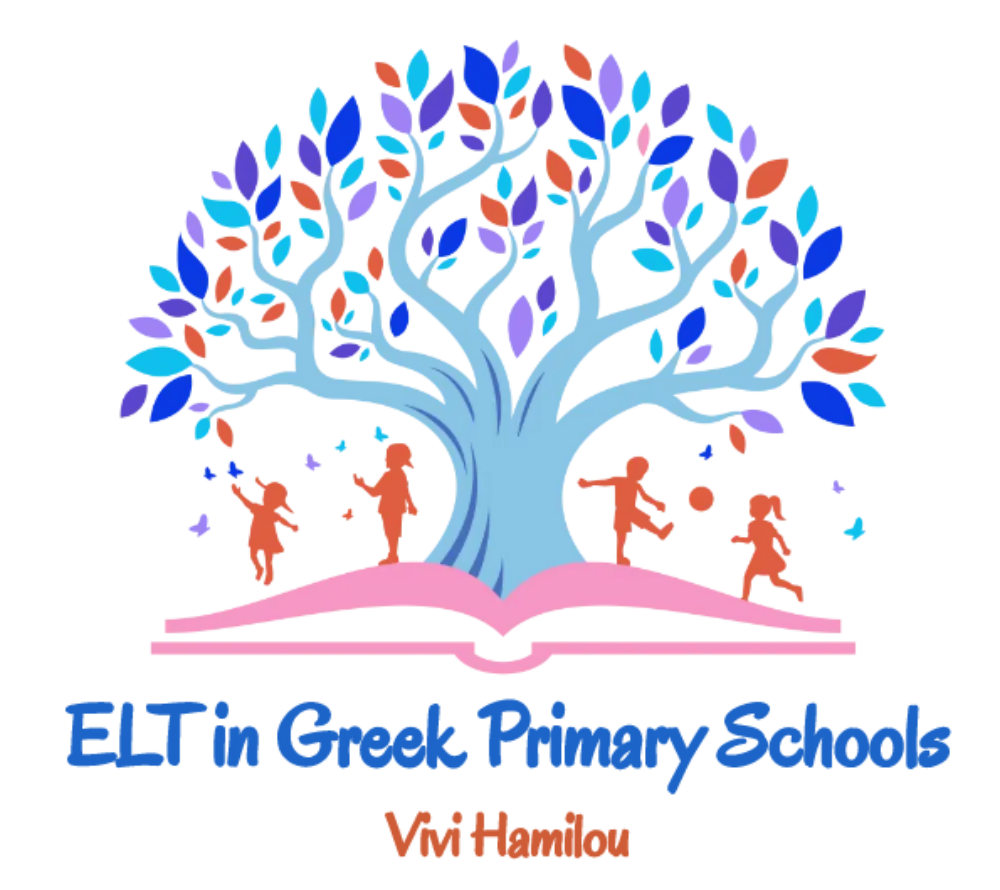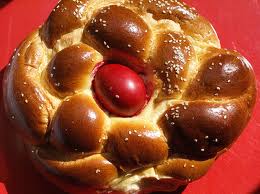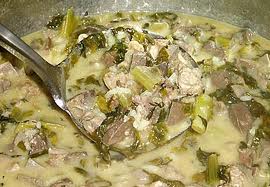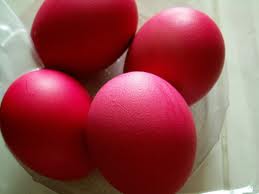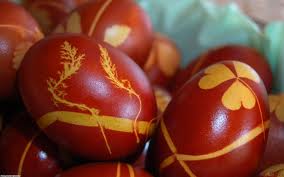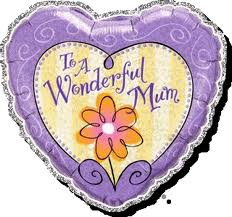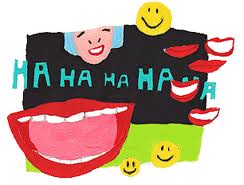Since the beginning of this school year, the Primary School of Pteleos has been involved in an eTwinning project that includes exchanging English school newspapers with other European Primary Schools ( St Mary’s Primary Duntocher, Clydebank, United Kingdom, Ulubatlı Hasan İlköğretim Okulu, Kocaeli, Turkey, Szkoła Podstawowa nr 1 im. Feliksa Nowowiejskiego w Barczewie, Barczewo, Poland, Samanyolu Ilköğretim Okulu , Ankara, Turkey and Öğretmen Mediha Mehmet Tetikol İlköğretim Okulu, Tekirdağ, Turkey. Their English school paper is called «Our World» (see their first issue here and their second issue here) and their third issue is ready! You can enjoy it here: APRIL ISSUE (3) – OUR WORLD – PRIMARY SCHOOL OF PTELEOS. You can also download the small magazine we issued along with the third issue of our newspaper “Our World” , written by our 2nd graders in their native language of course: WRITING ABOUT PTELEOS.
Month: April 2011
BACK THEN, I USED TO … – English School Paper, April 2011 Issue
BACK THEN, I USED TO …
(by our 6th graders)
Our 6th grade English course book invites learners to share with us their memories from the time when they were 4, 5 or even 7 years old. Here is what they wrote!!!
BACK THEN, I USED TO …
by Bill Tsouvalias
This is a photo of me when I was 5 years old. At that age I used to go to my grandfather’s village. I used to swim with him.
I like that place a lot because I made a lot of friends there. My grandparents and I were very happy. When my family and I were there, my grandfather used to tell me stories to sleep. We also used to make sandcastles on the beach.
Now, whenever I go to my grandparents’ place I feel sad and I want to cry, because I love them more than anyone in the world!
BACK THEN, I USED TO …
by Chryssa Papalexopoulou
When I was 4 years old I was a lovely child. I didn’t have to think about the problems that the world had. I was a sweet girl and I always used to have a shiny smile on my face.
That period was my favourite! I learnt how to swim. My dad was my teacher and I was a good student! He taught me how to be relaxed in the sea and how to dive in an amazing way. We had fun and, although I was a little bit scared, I’ll never forget it!
I love my family because they taught me how to live in this difficult world. I will never forget that experience, but I have many more experiences to explore with my family. I will love them forever!
BACK THEN, I USED TO …
by Marilena Louska
These are both photos of me when I was 5 years old. When I was 5 years old I was very happy because I used to live with my grandparents. My cousins and I used to walk and we used to go on trips with our friends.
We used to go to school at 8:00 in the morning and we came back home at 13:00. My grandma used to make lunch. We used to go to my aunt’s house and we were playing volleyball, handball, football, etc. My sister used to live with my mum and dad then.
I had fun when I was 5 years old, because I used to go to parties and on trips with my grandparents and cousins.
BACK THEN, I USED TO …
by Evaggelia Zaharaki
First of all, when I was five years old, I used to cry, but now I do funny things and I laugh a lot. Back then, I used to play with my friends, but now I do not have so many friends. Also, when I was five years old, I used to make sandcastles, but now I spend my time chatting with my parents and family. Finally, when I was five years old, I used to believe in Father Christmas, but now I don’t!
BACK THEN, I USED TO …
by Natasha Hassioti
When I was 4 years old, I used to drink a lot of milk. I used to sleep a lot, like all children do. I used to go on holidays with my parents and my sister. I used to play in the park with my sister. I didn’t know many words, although I could speak! That period was my favourite. I learnt how to ride a bike. I was so happy!
BACK THEN, I USED TO …
by Julie Alamanioti
When I was 4 years old, I used to be a very sweet girl. I used to live with my parents and grandparents, too. Now, I live only with my parents. I used to go to the zoo when I was 4 years old and I used to go to the playground, too. My mum used to tell me that I shouldn’t touch any animals, but I didn’t listen to her and one animal hit me and I started to cry. Some days I used to go to my grandparents’ house and, whenever I was not very happy, my grandmother used to give me a present!
BACK THEN, I USED TO …
by Christina Argyriou
When I was 7 years old, I used to go to my grandmother’s cottage near the sea. I liked the sea very much. On the beach I used to tell a lot of tales with my friends. In the afternoon, I used to walk near the sea with my boyfriend, Spyros, and we used to make sandcastles and collect shells. In the evening my father used to go to places by boat and look at the moon. Those were very happy days.
INTERVIEW WITH AN ARCHITECT – English School Paper, April 2011 Issue
Our 4th grade English course book invites learners to take an interview from a person who does any kind of job. Our 4th grade learners decided to take an interview from a local architect.
Interview with an Architect
by Vasso Boukorou and Zoe Gerogiakomou (4th grade)
In March we took an interview from Ms. Christina Theodororopoulou who is an architect. We want to find more information, because the job of the architect is interesting.
Do you only have work in Magnesia? If not, do you have more to do in Magnesia or somewhere else? I work everywhere, but more in Magnesia.
What does inspire you to sketch a house? I always have an idea of the place where the house will be. If the building is on a mountain or in the sea, the design will change.
How many years must someone study to do this job? In Greece, it takes five years. You can also have postgraduate studies which is for two more years or you can get a specialty.
Was the university difficult? No, it wasn’t very difficult. The lessons of the examinations were complex. There was not much theoretical examination, but there was a lot of sketching.
Is it difficult for someone to find a job as an architect? No, it isn’t difficult. You can work on your own, in a company, or work as a municipal clerk.
Can an architect decorate a house? Yes, of course he or she can decorate a house. S/he can change the colours, the furniture arrangement, the lights, s/he can even sketch new furniture.
Is it lucrative this job? It can be a lucrative job if one works with building licenses, renovations of houses and decorations.
Do you cooperate well with the workers? Yes, I cooperate very well with the workers because the sketches are easy to understand and we learn from each other.
Do you wear special clothes when you supervise the workers? Special clothes are not necessary. They have to be comfortable and casual. In big construction areas it is necessary to have a helmet on your head.
How many hours do you work per day? It actually depends on how much work you have to do, but it is definitely more than 8 hours.
Which is the most important sketch you have made? It’s the Museum of the Senses, which allows visitors to touch its surface and change it depending on their feelings at that moment.
Have you also designed other big buildings? I have designed two hotels. One of them is on the mountain and the other one is near the sea.
We would like to thank Ms Theodoropoulou for kindly and willingly answering our questions!
EASTER CUSTOMS – English School Paper, April 2011 Issue
EASTER CUSTOMS
by our 5th graders
Our school participates this year in an eTwinning project that involves learners in exchanging customs and traditional dances with other European schools. For the upcoming exchange, our 5th grade learners have prepared presentations of the Greek Easter customs and of other information related to Easter that they looked up on the internet!
Easter in Greece
by Valentina Velikova
During Easter week Greek people do not eat meat, fish or milk. They go to the church every afternoon.
On Easter Thursday Greek housewives dye red eggs and bake ‘’tsoureki’’, a traditional sweet bread. At night, women decorate Christ’s Epitaph with beautiful flowers.
On Easter Friday night the Epitaph goes around the village or town, followed by people who hold candles. This is like a funeral, so everybody is sad.
On Easter Saturday we go to church at night and at 12 at midnight we celebrate Christ’s resurrection. Then, we go home and eat “magiritsa’’, a soup with animal liver, lungs and intestines. It sounds disgusting, but it is really tasty!
On Easter Sunday we roast a lamb and we hit each other’s red eggs. We listen to music and we dance. We usually celebrate Easter Sunday with our family.
Easter Sunday in Greece
by Kosmas Gourgiotis
At Easter I go to the church. After that, I help my dad to roast the lamb. Then, we light a fire to roast it. We eat the lamb, but we also eat ‘kokoretsi’ and ‘kontosoufli’ with my parents. We drink wine and hit each other’s egg. Some people shoot with a gun in the air. I drink coca cola. At the end of the lunch we dance.
Easter in Skiathos
by John Kalantzis
Skiathos is one of the few areas in Greece that follows the Easter ritual of Agion Oros (a Greek area full of Orthodox monasteries with monks – women are not allowed in).
About 4:00 in the morning of the Easter Saturday, the Epitaphs from the two churches are carried out and they pass around the town.
The Epitaphs go along the narrow streets and paths of the island. People in all the houses have turned on the lights. The frankincense smells great! The two Epitaphs come back and meet at the church of the ‘Three Hierarchs’ and all the people come together and continue passing around as a group. They all go back to the churches at about 5:30 in the morning.
The people in the morning get ready for the Easter Saturday night celebration that is the Christ’s resurrection.
The red eggs
by Helen Kaltsouni
The red eggs of Easter. The eggs are a symbol of life and birth in many cultures. Especially the red eggs have been used in celebrations in China from the 5th century and in Egypt from the 10th century. It is in the 17th century that we find them in Christians and Mohammedans. For the early Christians the red egg is the symbol for Christ’s resurrection. In the Middle Ages people dyed red eggs to give them as presents for Easter.
Easter eggs with red colour. Some believe that people dye red eggs as a memory of the Christ’s blood, which He poured out for us, the people. Red is the colour of pleasure too. For some people, it is a symbol for the pleasure for Christ’s resurrection. The dying of the eggs was done on Easter Thursday, so it also called Red Thursday. In the past, the saucepan where they dyed the eggs had to be new and the number of the eggs had to be certain and they kept the red paint for forty days and they didn’t pour it out of the house. The colours for the eggs were made from different plants, like onions, poppies, violets etc. But the red colour was and is always the most favourite colour for the Easter eggs. Nowadays, most housewives use some kind of powder they buy from the supermarkets, giving thus the eggs a vivid red colour.
Natural decals. In the old times they chose leaves from plants and flowers and they put one of them on each egg. Then, they rolled up an old sock all over the egg, which they made secure with a string and then they dyed the Easter eggs.
The first dyed red egg. In the past, the first egg which they had dyed was for Virgin Mary and they put it at the shrine. Holding the egg, they were forming a cross in the air in front of the children to protect them from the evil eyes.
The resurrection of Jesus
by George Papargiris
Every Easter Saturday morning we go to the church. After the church the housewives make mageiritsa, a traditional Easter soup. The men prepare the lamb for Easter Sunday. In the evening we go again to the church and we celebrate Christ’s resurrection by lighting our candles with the Holy Flame. Then, we go home and form a cross on the upper part of our house door frame for good luck. After that, we enjoy our dinner as the fasting period is over. In the morning we go to the church. After the church we cook the lamb. At noon we eat the lamb and we drink wine. Easter is a very big celebration.
Easter rabbits
by Danae Xiromeriti
The Easter rabbit was actually a bunny. For the Saxons the bunny was the symbol of the goddess Eastre, who was celebrated in spring. This is where the word ‘Easter’ comes from in English. For the Kelts and Scandinavians, the bunny is the symbol of the goddess of motherhood and the spring fertility. The traditional bunny which brings eggs to children is of German origin. In Greece, every child’s godmother buys him or her a chocolate Easter bunny or egg. Do you know what they offer in some other countries?
In Australia they offer chocolate roosters.
In Sweden they offer chocolate foxes.
In France they offer chocolate bells.
In Great Britain they offer chocolate bunnies.
The Sunday before Easter
by Valentina Velikova
On Sunday before Easter we celebrate the entrance of Jesus Christ in Jerusalem. All of the churches are decorated with bay tree leaves and olive tree leaves. People who go to church on that day take tree leaves from the church at home.
In the old days, people used to give bay tree leaves to the newly-married couples for good luck. They also believed that these bay tree leaves would bring fertility to the couple.
People also believed that hitting someone with bay tree leaves had a healing power. They also used to hit their houses, their animals, their fields, their boats, etc for good luck.
POLAR BEAR – English School Paper, April 2011 Issue
Our 4th grade English coursebook invites learners to find information and write about animals that are in danger of extinction. Zoe wrote about polar bears.
POLAR BEAR
by Zoe Gerogiakomou (4th grade)
The polar or the white bears live on the icy Arctic areas in Asia and America. They have got white fur. Their eyes are black. They are 1,30 – 1,40 metres tall and they weigh about 500 kilos.
Most of the times we meet polars bears in groups of 10 or 12, or sometimes even more. They swim great and dive wonderfully under the water. They eat seals, fish, reindeer, roots and seeds.
In the winter, pregnant white bears go to their nests, dig in the ground and give birth to small bears. The mum loves the baby bears very much.
There are many dangers that polar bears face, for example, illegal hunting, lack of food and the fact that the place where they live becomes smaller.
POEMS ABOUT SEASONS – English School Paper, April 2011 Issue
Our 4th grade English book invites learners to write poems about seasons. Here is Zoe’s inspiration:
SUMMER
by Zoe Gerogiakomou (4th grade)
The sun is shining
Summer is here.
The children are swimming
Summer is here.
We go on holiday
Summer is here.
The children are eating ice-cream
Summer is here.
WINTER
by Zoe Gerogiakomou (4th grade)
We go skiing
Winter is here.
We make a snowman
Winter is here.
It’s snowing
Winter is here.
Santa-Claus is coming
Winter is here.
AN ENVIRONMENTAL PROJECT – English School Paper, April 2011 Issue
AN ENVIRONMENTAL PROJECT
by our 5th graders
The 5th Unit of the 5th grade English book invites learners to take action and work on an environmental project. It is with great excitement and enthusiasm that our 5th grade learners worked on finding a project that would help people realize the dangers against our planet and locate local environmental issues.
On a local level, our learners decided to hold a photo exhibition within the school, in order to show the beautiful aspects of Pteleos. Unfortunately, upon moving around the village and taking beautiful pictures, they discovered some ugly parts of Pteleos, full of rubbish! It was this moment that their pre-planned photo exhibition got its extra section, the embarrassing aspects of Pteleos. Here are only some of the pictures they took:
The photo exhibition will be held at our school entrance after Easter holidays, so our 5th grade learners decided to send a letter to the Mayor, in order to invite him to their exhibition and inform him about their findings. Here is the letter they wrote (in Greek, of course!):
Αξιότιμε κ. Δήμαρχε,
Είμαστε οι μαθητές της Ε’ Τάξης του Δημοτικού Σχολείου Πτελεού και σας γράφουμε για να σας γνωστοποιήσουμε τα αποτελέσματα μιας εργασίας μας.
Αυτή τη χρονιά, το βιβλίο των Αγγλικών μας είχε ένα κεφάλαιο με θέμα το περιβάλλον. Αποφασίσαμε όλοι μαζί να κάνουμε μια έκθεση φωτογραφίας. Θα παρουσιάζαμε όμορφα τοπία του χωριού μας. Αρχικά, πήγαμε με την καθηγήτριά μας και φωτογραφίσαμε μαζί τη φύση, αλλά το επόμενο Σαββατοκύριακο οργανωθήκαμε σε ομάδες και σκορπιστήκαμε σε διάφορα μέρη της περιοχής. Δυστυχώς, ανακαλύψαμε και κάποια άσχημα τοπία, γεμάτα σκουπίδια, και αποφασίσαμε να τα φωτογραφίσουμε και αυτά. Η έκθεση φωτογραφίας μας, λοιπόν, θα περιλαμβάνει τις ωραίες, αλλά και τις άσχημες εικόνες του Πτελεού και θα φιλοξενείται στην είσοδο του σχολείου μας μετά τις διακοπές του Πάσχα.
Θα ήταν μεγάλη μας χαρά να επισκεφθείτε την έκθεσή μας, να σας ενημερώσουμε για τις ανακαλύψεις μας και να σας παρακαλέσουμε και από κοντά να κάνουμε κάτι όλοι μαζί γι’ αυτή την κατάσταση. Τώρα που πλησιάζει το καλοκαίρι και θα έρθουν τουρίστες, θα είναι άσχημο να αντικρύσουν τις βρώμικες περιοχές και να μην ξαναέρθουν στο χωριό μας. Αν σας είναι δύσκολο να έρθετε στο σχολείο μας, μπορείτε να επισκεφθείτε το ιστολόγιο του σχολείου μας (https://blogs.sch.gr/dimptemag/) και να πάρετε μια γεύση από την έκθεση φωτογραφίας που διοργανώσαμε.
Με εκτίμηση,
Ιωάννα Σκούρα
Γιάννης Καλαντζής
Έλενα Καλτσούνη
Δανάη Ξηρομερίτη
Κοσμάς Γουργιώτης
Αλέξανδρος Παρδαλός
Ελένη Αλαμανιώτη
Βαλεντίνα Βελίκοβα
Γιώργος Παπαργύρης
Except for the photo exhibition, our 5th grade learners decided to organize a drawing competition, inviting learners from their school, as well as learners from other Greek or European Primary Schools to participate. The topic of the drawings will be “Save the Planet” and all participants will have to draw on an A4 piece of paper and send their drawing to our school. Here is the poster they prepared:
Here is an inspiring video we found on SchoolTube:
INTERVIEWING A LOCAL FOOTBALL PLAYER – English School Paper, April 2011 Issue
INTERVIEWING A LOCAL FOOTBALL PLAYER
by our 6th graders
On Monday 11th April we took an interview from the footballer Vassilis Siamanikos who plays in the local football team Protessilaos. He came to our classroom and we had prepared a questionnaire.
First, we asked him how long he has been playing football and he replied that he was in the local football academy since he was 14 years old. Now he’s been playing for 6-7 years in Protessilaos. The second question we asked was if he had taken part in any other types of sports teams and if so, which sport. He told us that he liked swimming, but there are not many facilities in Pteleos, so he chose football.
Then, we wanted to know if there are times when he feels like he doesn’t like football and he answered that he doesn’t like its competitive nature and injuries. After that, we asked him if he likes being in this team and he answered that he likes that because he feels that his co players are family and this year they won the cup. Also, we asked him what is the right age for someone to start training if he wants to become a professional football player and he told us that the sooner one starts, the better it is. The last question of the questionnaire we had prepared had to do with how someone can evolve from a local team to a bigger team with professional footballers. His answer was that someone must see him playing and acknowledge his talent or that he should participate in tournaments where players from lower divisions can go, play football and be selected if they are good.
In the end, when the questions from our questionnaire had finished, we started asking him questions that we wanted to be answered and of all these questions we learnt a lot of things. We learnt that footballers in Protessilaos are amateur players, meaning they are not paid, but they train six hours per week. Also, we learnt that personally he had won a prize and recently the team won a cup. We also asked what every player must do to get ready for a match and he answered that every player mustn’t go to sleep late the precedent night and before the match every player must eat something light, without too many fats, like spaghetti, or chicken.
We would like to thank Vassilis Siamanikos for coming to our school for the interview for our school newspaper. We learnt things that we didn’t know for the history of ”Protessilaos” and we’re excited. We always go to the stadium or at their football matches when they are far away, but now we decided to support the team even more.
Apart from the fact that we learnt a lot, we realized that when Mr Siamanikos was a child, he had the opportunity to train and learn how to play football in his area. As for us, we have to move to Sourpi, or Almyros to have the chance to take exercise. Therefore, we decided to write a letter to the football team management to express our interest in the creation of a football team for children our age. Here is the letter we sent and it has been signed by all the learners who want to learn how to play football:
MY MUM, A WOMAN TO BE PROUD OF – English School Paper, April 2011 Issue
My mum, a woman to be proud of …
by Hryssa Papalexopoulou (6th grade)
You’re there when I need you; you forget your own worries. You’re my refuge and rock, with you I feel secure. Maybe I should tell you more often how much I appreciate you, but you’re the one I love, a bit more each day. You bring warmth and joy in my life. These are some words to describe how much I love you!
JOKES – English School Paper, April 2011 Issue
JOKES
by Hryssa Papalexopoulou
What did John say when he saw four elephants walking down the hill?
“Are elephants coming?”
And what did John say when he saw four elephants with black sunglasses walking down the hill?
Nothing. He didn’t recognize them!
———————-
Teacher: Tell us, Helen, where does God live?
Helen: I think in the bathroom, Miss.
Teacher: And why are you saying that?
Helen: Because every morning my dad is behind the bathroom door and he says: “God, will you ever get out?”
———————-
Two men were gambling in a salon. One of them stood up and he started screaming:
– I won, I won!
– What do you have?, the second man asked.
– Four aces.
– I think that you don’t….
– Why, what do you have?
– Two nines and one gun!!!
AN EFL COLLEAGUE’S RESEARCH
Ms Melissa Evangelidi is an EFL teacher conducting a research for her dissertation. All EFL colleagues, either working in the public or in the private sector, are kindly requested to assist. Here is her letter inviting us all to participate (it really does not take more than 10 minutes to fill the questionnaire in!):
Dear English Language Teacher,
I am conducting an Action Research study into the effects of implementing project-based learning with Greek young / teenage EFL learners for my dissertation for a Master’s degree in TESOL from Aston University, UK. As part of this research I am very interested in finding out about teachers’ views and experiences of project work in Greek ELT classrooms in both state and private (frontistiria) settings. (The term ‘project’ for this study is being used to refer to a number of activities related to a central topic and not a single task in a course book under the label ‘project’.)
I would like to invite you to complete this questionnaire, which should take you about 10 minutes.
Your answers are completely confidential and will only be used in summaries.
You will need to complete the following questionnaire electronically, save it temporarily on your PC and send as an email attachment to the following address: mevangelidi@yahoo.gr
To mark your answers for closed questions, please highlight the appropriate box as in the following example:
Do you use projects in your teaching practice?
Yes □ No □
For open answers, type directly into the spaces provided in the document.
Your opinions and experiences are very important to me. Thank you for your time and cooperation.
Kind regards,
Melissa Evangelidi
